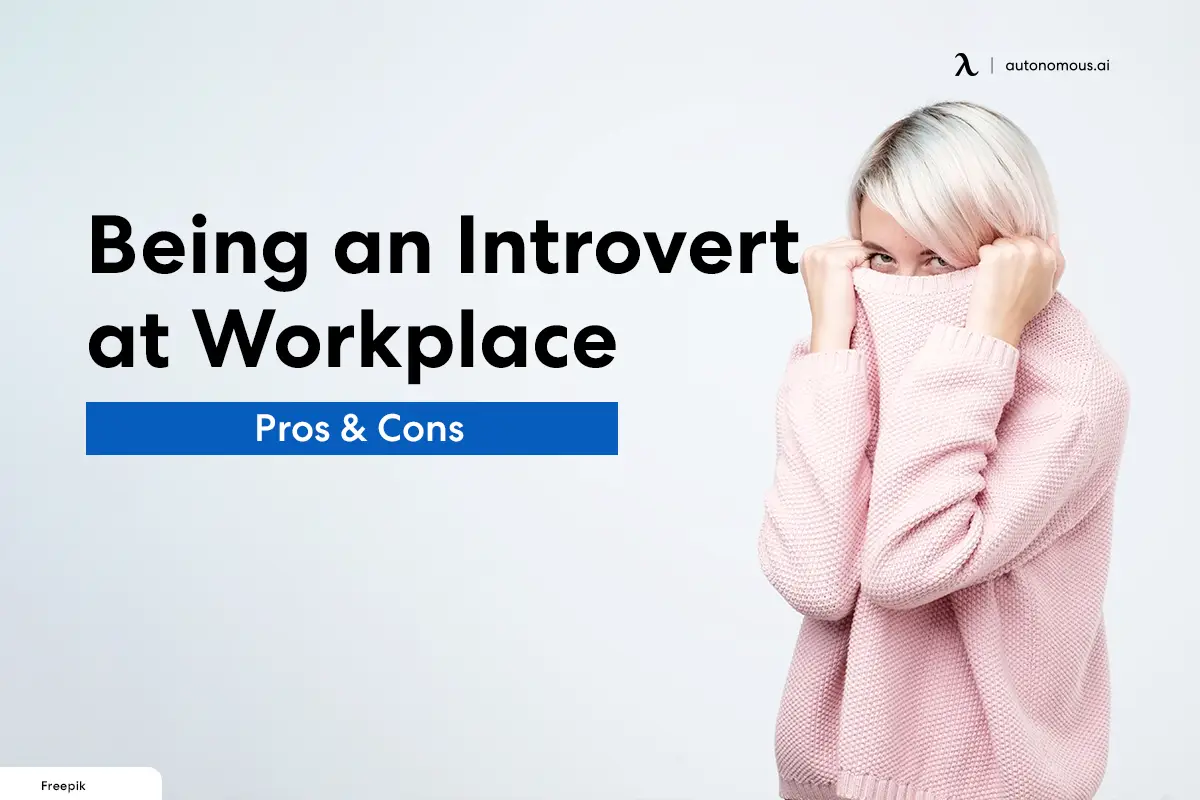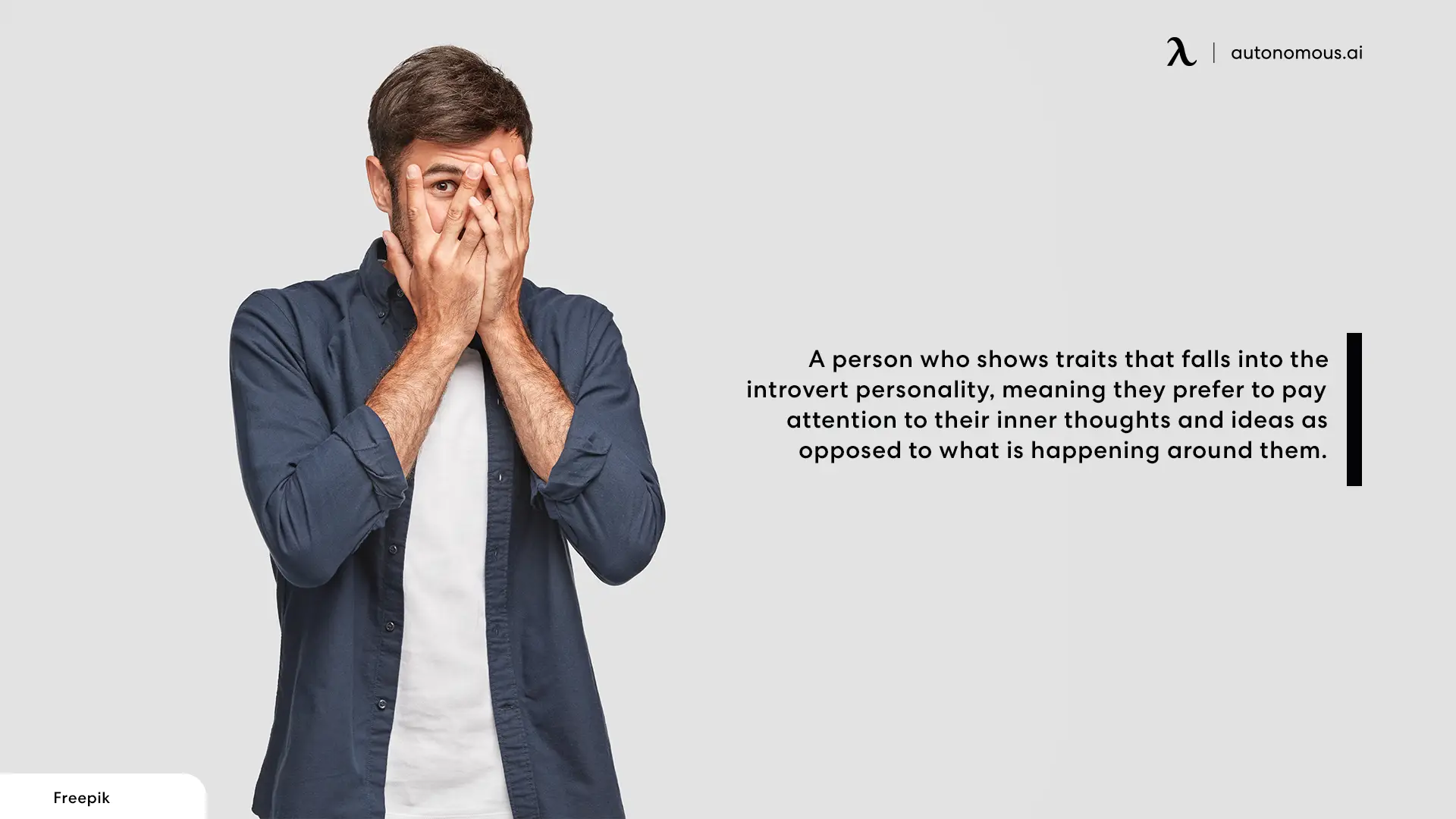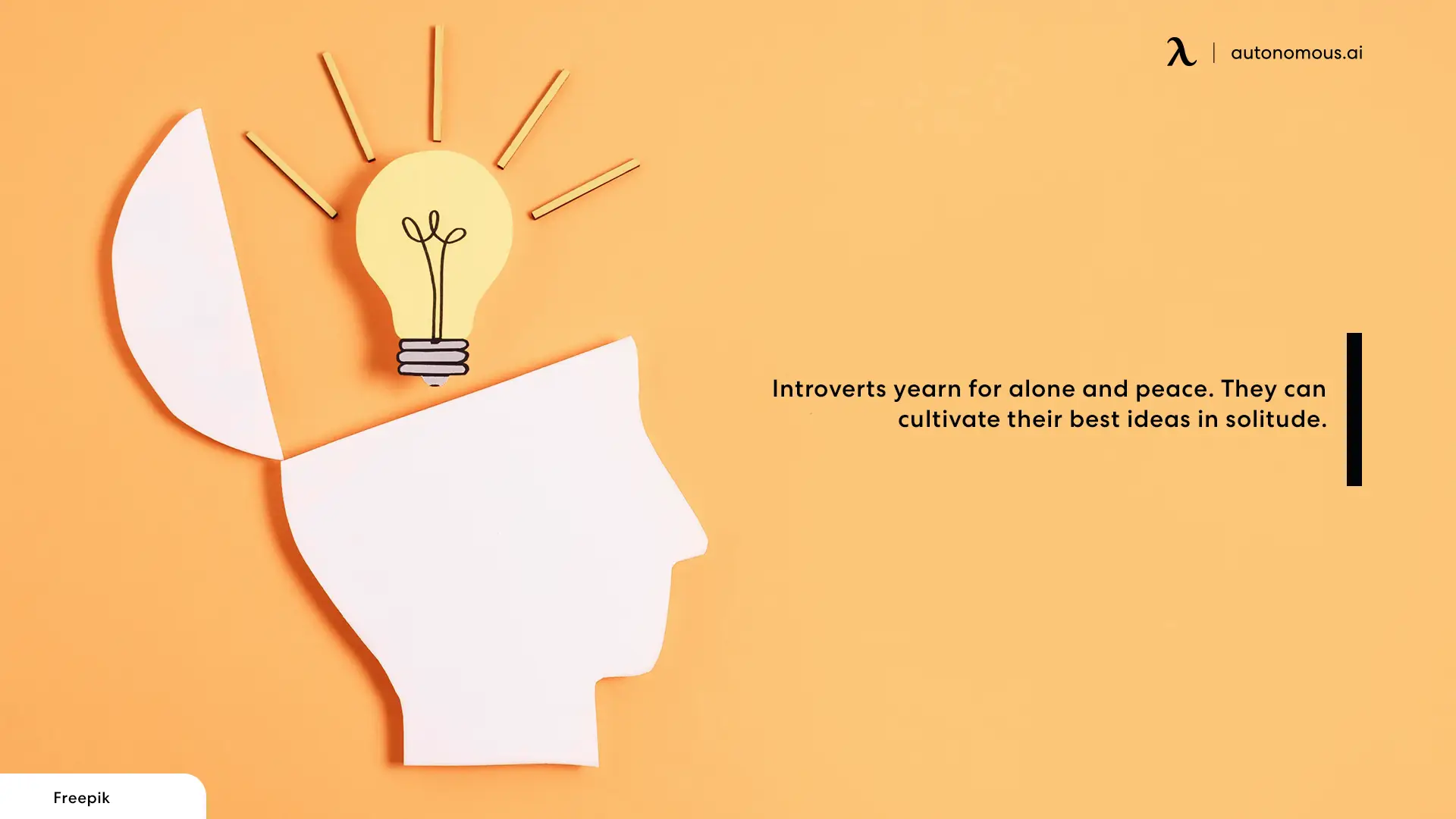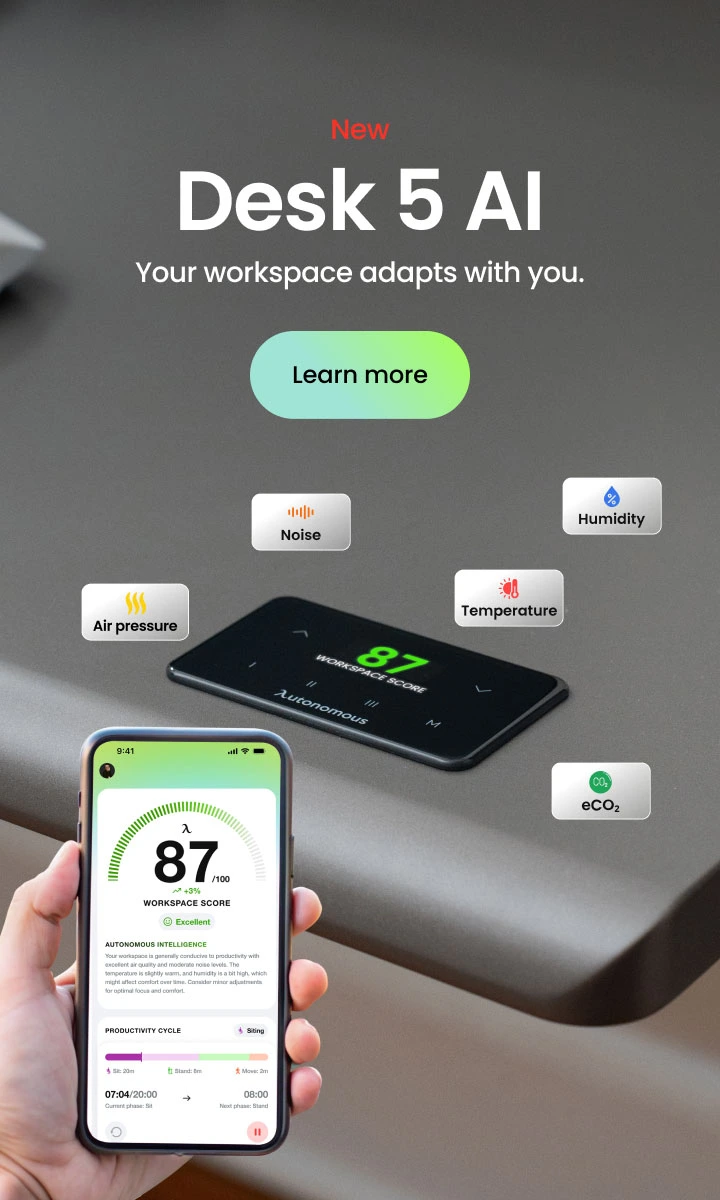
When you see a modern workplace layout, you will soon realize that many things suit extroverts well to extroverts. Open office layouts, collaborative spaces, chatty workers, and encouraging teamwork are some things that truly cause anxiety in office workers. As much as these things are for the betterment of the organization and employees' personal growth, some organizations actively understand the need for private, focused corners for an introvert in the workplace.
These include privacy panels, corner desks, or an indoor office pod that fosters a supportive work environment for those who need their own space to work. But as much as introverts and extroverts are crucial to making for a productive work environment and society, there are some disadvantages and benefits of an introvert at the workplace. In this article, you will learn all you need to know about being an introvert in the workplace and its effect on workplace etiquette.
What is an Introvert?
A person who shows traits of closeness and shyness falls into the introvert personality, meaning they prefer to pay attention to their inner thoughts and ideas as opposed to what is happening around them. Instead of being among vast crowds or groups, they prefer to spend time with one or two people. Introverts are often termed shy and people with low confidence, but that's not always the case. An introverted person can be equally outgoing in the company of people they feel comfortable with.
There are many traits of an introvert that make them a highly beneficial part of our society. And as much as extroverts are found everywhere, offices should also understand that a certain portion of their workforce will be introverted. While they might not always be up for a work-related presentation, below are all how an introvert can enjoy benefits or suffer in a workplace.

Benefits of Being an Introvert in A Workplace
The calm and quiet composure is often considered a lack of ideas and confidence, but introversion is much more about the inner world than the exterior world. Here are some benefits of introverts in the workplace.
Introverts are Creative
Collaboration is not always necessary for creativity. For introspection and recharging, introverts yearn for alone and peace. They can cultivate their best ideas in solitude. Research has shown that introversion can encourage original thought and productivity if your need for isolation is not motivated by fear or worry. Introverts can focus inward and let their imaginations run wild when there is less noise around them. It makes sense that introverted people are painters, authors, and other creative types.

Introverts are Cautious
Introverts live more with the inner world than the outer, so they are actively aware of their thoughts. For them, a decision results from approaching an outcome from multiple angles. Hence, they can be counted on to make reliable and cautious decisions. This doesn't mean that extroverts are wrong decision-makers, but an introvert is more likely to overthink each outcome and hence plan their decision.
Introverts are Influential
Their calm and collected personality are impressive, especially in leadership roles. Even though their influencing abilities may not be as visible, introverts can frequently persuade others by speaking quietly and making their points without excessive emotion or drama. They don't communicate since they aren't drawn to raucous, chaotic settings and conversations. Their ability to persuade others with grace and honesty is advantageous in various settings. Introverts, due to their effective communication, can act as workplace inspiration.

Introverts are Good Listeners
Introverts are renowned for their abilities to listen well, internalize and reflect on what they hear, and apply it to their professional lives. Therefore, introverted employees can feel confident they are being heard when a teammate or boss communicates with them and that their insights will be used in the most considerate way possible.
Compassionate Leaders
The strictness of a leader in a workplace has been associated for long enough, but positive workplaces realize the value of a compassionate leader. And since introverts are famously known as understanding and empathetic, they make for great leaders. They ensure their employees receive the right confidence and actively listen to their workforce's concerns. Moreover, with their detail-oriented approach, an introvert is more likely to focus on the things that are often overlooked. They also help ensure and implement positive workplace affirmations that encourage a healthy work environment.

Disadvantages Of Being an Introvert in The Workplace
Due to their quiet nature, introverts can often be misunderstood or overlooked. They are also the ones to experience introvert workplace discrimination. Here are some disadvantages of being an introvert in the workplace.
Difficulty in Managing Team Tasks
Someone who asks why teamwork is important in a workplace might not be aware of the wonders of a team working on a project. Each organization wants its team members to have productive bonding so the work can be done more easily and a positive culture is fostered. On the other hand, introverts are not so good and adaptable when it comes to teamwork. They often find their abilities halted or unable to speak in a crowd coming in the way of their performance.
They are Often Misjudged
If you are an introvert, you are probably taken as someone who doesn't have a lot of knowledge about things. This might increase your ability to be selected for tasks and often cause you to be overlooked. Introverts don't speak much about their accomplishments, nor do they find the right words to speak up about their talents, and this causes them to be ignored.

They Have a Hard Time Speaking in Public
In some circumstances, they exhibit shyness. Because they are self-conscious, they detest speaking in front of groups. Public speaking, meanwhile, is agonizing. Introverts may be disadvantaged because public speaking is sometimes required in situations.
Social Gatherings Can Be Awkward
Social gatherings can frequently be uncomfortable for introverts because they often feel more at ease alone or in small groups. This can cause them to be seen as uninterested. But they should be invited as they like to be a part of things. Introverts frequently prefer to observe events unfold rather than participate in them. Once more, they require time and room for processing.
Spread the word
.svg)







